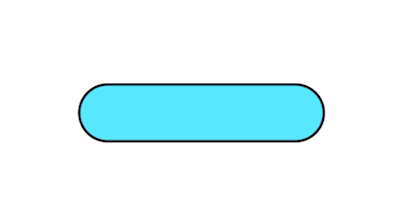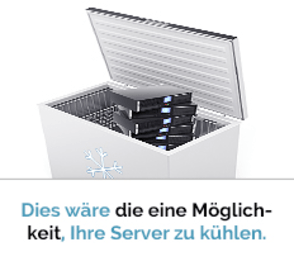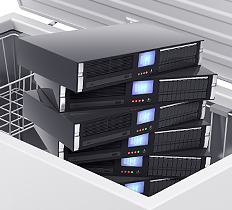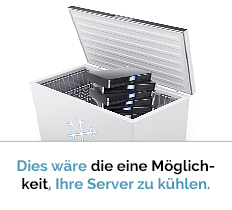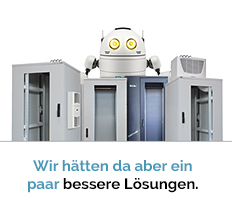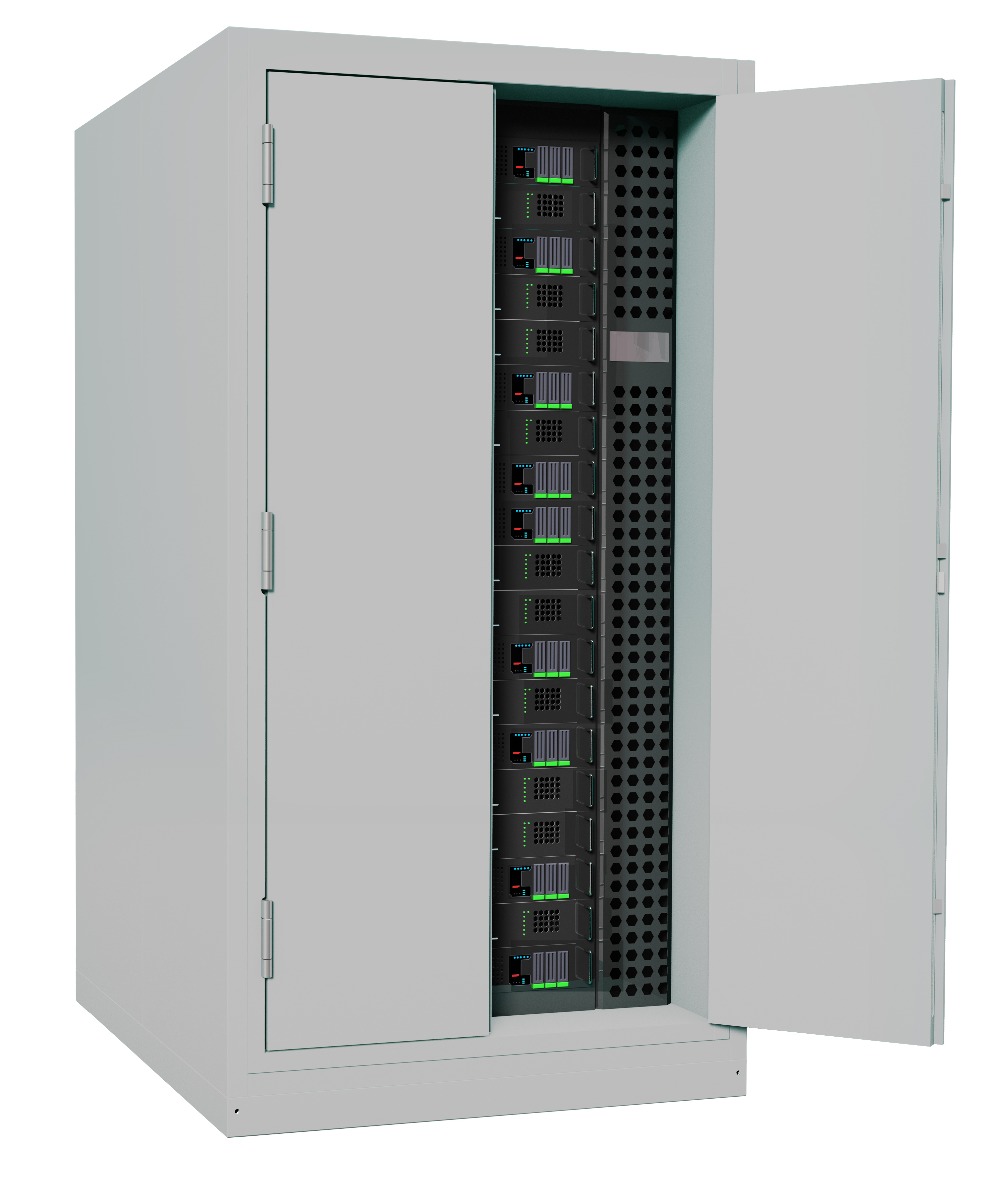
Fire-resistant security 19-inch server rack
Lehmann fire resistant security rack, according to the motto Plug and Play
Our fire-resistant security server racks are equipped ex-works with:
- Fire resistance 90min. according to F90 according to DIN 4102 part 2 or EI90 according to EN 13501-2
- Protection class according to IP54
- non-combustible according to EN13501-1 As1d0
- Protection of data against physical access
F-Cab Compact 90 with EC High-Performance Fans: The revolutionary safety rack for 19" IT racks up to 15 rack units!
In this impressive fire-resistant security cabinet, there is a 15U rack with a generous width of 600 mm and a depth of 800 mm.
What makes the F-Cab Compact 90 so special? Here are the breathtaking features at a glance:
- Fire resistance of an incredible 90 minutes according to F90 according to DIN 4102 Part 2 or EI90 according to EN 13501-2.
- IP54 protection to shield your valuable data from dust and splashing water.
- Complies with the EN13501-1 As1d0 standard for non-flammability.
- Ensures physical access protection for your sensitive information.
But that's not all. The F-Cab Compact 90 offers a thoughtful and impressive construction:
- The fan module is equipped with two powerful EC fans that ensure optimal air circulation.
- The front and rear doors are equipped with highly secure locks to prevent unauthorized access.
- Smoke detection and exhaust temperature above 35°C are automatically reported thanks to the optionally available potential-free contacts.
- The digital display of the exhaust temperature allows for precise monitoring.
- In case of fire, the ventilation opening automatically closes to prevent the spread of fire.
- The integrated S90 cable gland is 60% occupiable and ensures organized cabling.
- Additionally, the F-Cab Compact 90 is suitable for underfloor installation, allowing for flexible placement.
Now, let's take a closer look at the fan module:
- The fan module consists of a blowing and an extracting EC fan, together generating an impressive maximum airflow of 1700 m³/h.
- Control is done via a digital temperature controller, ensuring precise regulation.
- With two relay outputs (250 V/AC/2 A), you can control additional devices.
- The input voltage is 220-240 Volts at 50/60Hz.
- Electrical connection is made through the convenient IEC20 socket on the fan housing.
- The housing is made of sturdy 1.5 mm steel sheet with an elegant RAL9005 black finish.
- The dimensions of the fan module are 483x45x220mm.
And finally, the EC fan:
- Rated voltage: 230 VAC.
- Speed: an impressive range from 1 to 2330 revolutions per minute.
The EC fan weighs only 2.1 kg, despite its powerful performance.
The F-Cab Compact 90 with EC High-Performance Fans is the perfect choice to protect your IT racks and ensure optimal cooling. With its robust design, innovative features, and precise control, it is a standout for any modern IT infrastructure.
What causes heat in servers, and why is it important to dissipate it?
- What are the potential consequences of failures in devices and connections?
If the devices and connections housed in the server cabinet do not function properly, it can lead to service interruptions, loss of connectivity, or compromised security. For example, a faulty router can result in internet outages for connected devices. Similarly, failures of video surveillance or alarm systems can make buildings vulnerable to security threats. Therefore, ensuring the proper functioning of devices and connections is crucial to maintaining a reliable and secure network infrastructure.
- Why should the heat generated by servers be dissipated?
The heat generated by servers needs to be dissipated to prevent overheating. Overheating can negatively impact the performance and lifespan of servers and other network components. By dissipating heat, the temperature inside the server cabinet can be kept within safe limits, ensuring the proper functioning and longevity of the equipment.
- What can happen if the heat generated by servers is not dissipated?
If the heat generated by servers is not dissipated, it can lead to overheating, causing damage to servers and other network components. Overheating can result in performance degradation, system instability, and even permanent hardware failure. Proper heat dissipation is necessary to maintain the optimal operating temperature and prevent potential damage.
- Why is it important for these devices and connections to function properly?
It is crucial for these devices and connections to function properly because they play a vital role in the smooth operation of various services, such as internet connectivity, video surveillance, and alarm systems. Any malfunction or disruption of these components can disrupt these services and potentially cause significant inconvenience or even compromise security.
- What other network components are housed in a server cabinet alongside servers?
In addition to servers, a server cabinet houses other network components such as routers, switches, and other devices necessary for the functioning of internet, video surveillance, or alarm systems.

 Deutsch
Deutsch Français
Français
